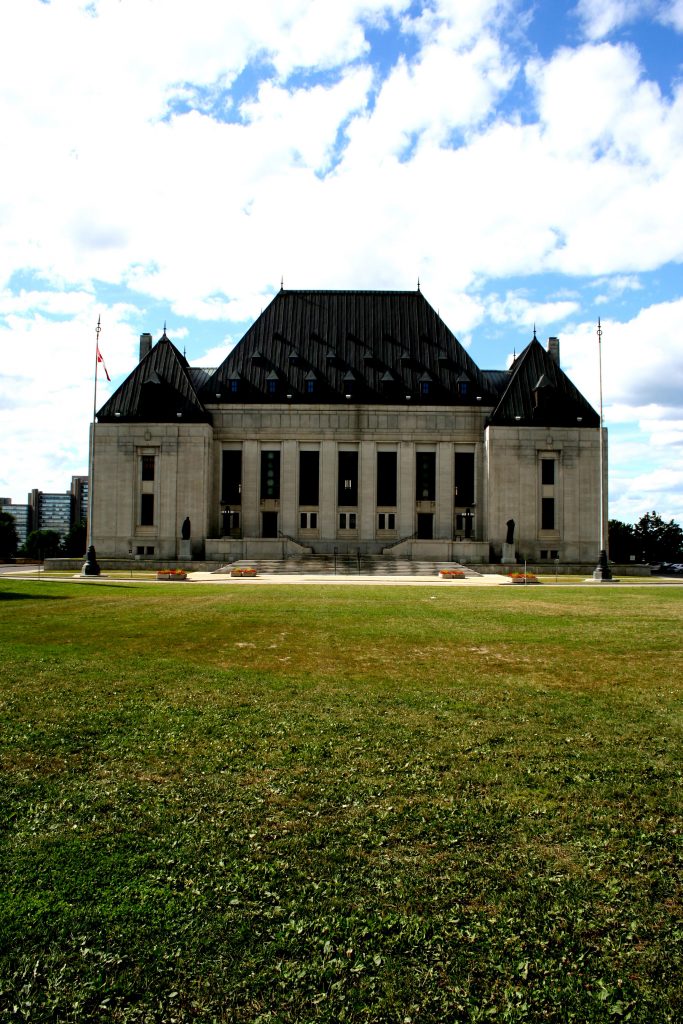 When a plaintiff files a lawsuit, he or she must make sure that the filing is done in the right court at the right time. The court hearing the dispute must have the power to adjudicate and resolve those claims. Sometimes, certain legal doctrine can bar a court from hearing a case, such as sovereign immunity. And similarly, cases can only be decided if the timing is right – the claim must not be brought to early or too late. The effect of filing the claim in the wrong court or at the wrong time can lead to a dismissal, wasting a substantial amount of time and money. In a recent decision, the United States Fifth Circuit Court of Appeal found that a case against the Secretary of the Louisiana Department of Wildlife and Fisheries was both barred by sovereign immunity and not ripe for adjudication.
When a plaintiff files a lawsuit, he or she must make sure that the filing is done in the right court at the right time. The court hearing the dispute must have the power to adjudicate and resolve those claims. Sometimes, certain legal doctrine can bar a court from hearing a case, such as sovereign immunity. And similarly, cases can only be decided if the timing is right – the claim must not be brought to early or too late. The effect of filing the claim in the wrong court or at the wrong time can lead to a dismissal, wasting a substantial amount of time and money. In a recent decision, the United States Fifth Circuit Court of Appeal found that a case against the Secretary of the Louisiana Department of Wildlife and Fisheries was both barred by sovereign immunity and not ripe for adjudication.
The initial controversy in this East Baton Rouge case arose when the owners of Comite Dirt Pit, Inc. (CDP), Plaintiffs Richard and Betty Rush, failed to comply with the Louisiana Scenic Rivers Act (LSRA). The LSRA prohibits mining, logging, and the removal of trees within 100 feet of rivers such as the Comite River. La. R.S. 56:1856. The Louisiana Department of Wildlife and Fisheries (LDWF) had multiple temporary restraining orders (TRO) served upon CDP, which was situated on the Comite River, to cease its activity. The Plaintiffs challenged these TROs and filed a lawsuit alleging that LDWF was in violation of the Takings Clause and the Tenth Amendment. The lawsuit was dismissed because the Trial Court found that there was no subject matter jurisdiction. The Plaintiffs appealed.
There were two significant legal issues in this case. First, the Eleventh Amendment prohibits lawsuits in which the damages would be paid from public funds (i.e. lawsuits against the government). See Edelman v. Jordan, 415 U.S. 661 (1974). This is known as sovereign immunity. Though the lawsuit named Robert Barnham as a defendant, he was the Secretary of the Louisiana Department of Wildlife and Fisheries. Thus, if the defendant was found guilty of the Rush’s allegations, the damages would be paid with state money and the Eleventh Amendment. The Fifth Circuit accordingly found that the suit was barred and it had no jurisdiction over the Plaintiffs’ complaints.
 Louisiana Personal Injury Lawyer Blog
Louisiana Personal Injury Lawyer Blog


 The Louisiana Merchant Liability Statute aims to protect persons from unreasonable risks of harm by unscrupulous merchants. At the same time, it limits the liability of merchants and protects them from frivolous lawsuits. In order to succeed on a merchant liability claim, the plaintiff must show that the merchant knew or should’ve known of the dangerous condition that harmed the plaintiff. In a recent case, while considering that a dance ballroom can be considered a “merchant, the Louisiana First Circuit Court of Appeal found that the plaintiff failed to show that the defendants had knowledge or constructive knowledge of the risk of harm.
The Louisiana Merchant Liability Statute aims to protect persons from unreasonable risks of harm by unscrupulous merchants. At the same time, it limits the liability of merchants and protects them from frivolous lawsuits. In order to succeed on a merchant liability claim, the plaintiff must show that the merchant knew or should’ve known of the dangerous condition that harmed the plaintiff. In a recent case, while considering that a dance ballroom can be considered a “merchant, the Louisiana First Circuit Court of Appeal found that the plaintiff failed to show that the defendants had knowledge or constructive knowledge of the risk of harm. It is no secret that a lawsuit has the potential to become a tangled web of procedural issues. This is why it is always a good idea to secure a good attorney with experience in dealing with the court system. Perhaps less common is the situation where the judge, the party responsible for ensuring an efficient and timely resolution of the dispute, gets tripped up in this procedural web. This is exactly the situation below.
It is no secret that a lawsuit has the potential to become a tangled web of procedural issues. This is why it is always a good idea to secure a good attorney with experience in dealing with the court system. Perhaps less common is the situation where the judge, the party responsible for ensuring an efficient and timely resolution of the dispute, gets tripped up in this procedural web. This is exactly the situation below. When you are in a motor vehicle accident, there are many issues that can arise as to the issue of fault and whose version of events is more reliable. Conflicting versions of what happened can make it difficult for the court to assign fault. It is thus important to always be aware of your surroundings and the laws of driving a motor vehicle, as illustrated in the following case.
When you are in a motor vehicle accident, there are many issues that can arise as to the issue of fault and whose version of events is more reliable. Conflicting versions of what happened can make it difficult for the court to assign fault. It is thus important to always be aware of your surroundings and the laws of driving a motor vehicle, as illustrated in the following case.  In November 2008, in Claiborne Parish, Mr. Fields went to Willis Knighton Claiborne Regional Health Center for complaints of diarrhea. Mr. Fields also had an extended history of medical issues, including hypertension and a kidney transplant. He saw a nurse practitioner, who consulted with a doctor and gave him a prescription for a generic antibacterial, which he took as directed. About a week later, he called his doctor’s office complaining that the medicine was making him feel worse. He alleged that he was instructed to continue taking the medicine as originally directed.
In November 2008, in Claiborne Parish, Mr. Fields went to Willis Knighton Claiborne Regional Health Center for complaints of diarrhea. Mr. Fields also had an extended history of medical issues, including hypertension and a kidney transplant. He saw a nurse practitioner, who consulted with a doctor and gave him a prescription for a generic antibacterial, which he took as directed. About a week later, he called his doctor’s office complaining that the medicine was making him feel worse. He alleged that he was instructed to continue taking the medicine as originally directed. When asserting a claim under constitutional law, the moving party must meet a specific standard that is easily navigated by an attorney. As one Louisiana man recently learned, without the help of a lawyer, navigating these pleading standards can be difficult and detrimental to the outcome of your case.
When asserting a claim under constitutional law, the moving party must meet a specific standard that is easily navigated by an attorney. As one Louisiana man recently learned, without the help of a lawyer, navigating these pleading standards can be difficult and detrimental to the outcome of your case. In a lawsuit, a client’s claims need to be monitored every step of the way. If an issue is revived in an appeal, an attorney must keep track of it and reinforce it at each new representation. If an attorney doesn’t continue to assert a claim, a court might think the party abandoned the issue and the court will not review it on appeal. Keeping these claims alive is not a major undertaking, but as Glenn E. Alphonse, Jr. learned in his recent case, even the slightest misstep in this area can make or break an outcome.
In a lawsuit, a client’s claims need to be monitored every step of the way. If an issue is revived in an appeal, an attorney must keep track of it and reinforce it at each new representation. If an attorney doesn’t continue to assert a claim, a court might think the party abandoned the issue and the court will not review it on appeal. Keeping these claims alive is not a major undertaking, but as Glenn E. Alphonse, Jr. learned in his recent case, even the slightest misstep in this area can make or break an outcome.  We enter into contracts all the time without putting the agreement in writing; we form contracts when we buy a cup of coffee, when we shop online, etc. Some types of contracts, however, are required by law to be in writing. Kevin and Monica Schmidt (the Schmidts) learned this the hard way when they could not enforce an oral agreement to frack oil wells in Beauregard Parish.
We enter into contracts all the time without putting the agreement in writing; we form contracts when we buy a cup of coffee, when we shop online, etc. Some types of contracts, however, are required by law to be in writing. Kevin and Monica Schmidt (the Schmidts) learned this the hard way when they could not enforce an oral agreement to frack oil wells in Beauregard Parish. Sometimes we don’t have the best neighbors. For example, a neighbor might block access to your land, arguing that it is, in fact, the neighbor’s land you traverse on a daily basis. When such a dispute arises, get a good real estate attorney. If ingress to a piece of your property requires you to pass over someone else’s land, you might need to seek an easement. An easement is simply a right of passage through someone else’s land. This can be done in one of three ways: (1) by agreement, (2) by traditional or historic use, or (3) by necessity. In a recent case, the parties fought over the right to pass over a gravel road in Webster Parish, Louisiana. In the case, the court discusses its discretion in deciding whether an easement is necessary.
Sometimes we don’t have the best neighbors. For example, a neighbor might block access to your land, arguing that it is, in fact, the neighbor’s land you traverse on a daily basis. When such a dispute arises, get a good real estate attorney. If ingress to a piece of your property requires you to pass over someone else’s land, you might need to seek an easement. An easement is simply a right of passage through someone else’s land. This can be done in one of three ways: (1) by agreement, (2) by traditional or historic use, or (3) by necessity. In a recent case, the parties fought over the right to pass over a gravel road in Webster Parish, Louisiana. In the case, the court discusses its discretion in deciding whether an easement is necessary.  The importance of adhering to required timelines and District Court orders could not be overstated. A failure to comply with court deadlines can result not only in your claims being dismissed but also a heavy fine. Former inmates at Richwood Correctional Center (“RCC”) learned that the hard way on appeal in the Louisiana Second Circuit of Appeal.
The importance of adhering to required timelines and District Court orders could not be overstated. A failure to comply with court deadlines can result not only in your claims being dismissed but also a heavy fine. Former inmates at Richwood Correctional Center (“RCC”) learned that the hard way on appeal in the Louisiana Second Circuit of Appeal.